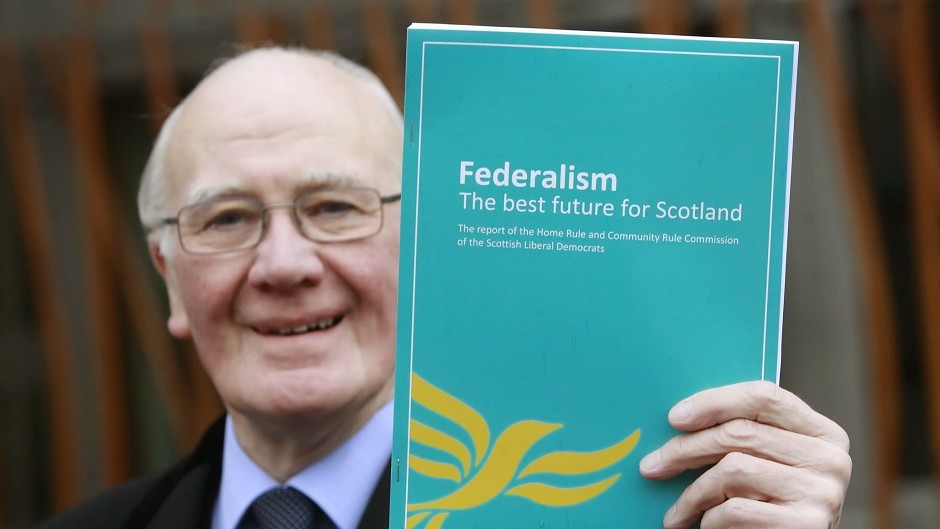Former Liberal Democrat leader Lord Campbell warned last night that an independent Scotland would be less safe, with “dangerous implications” for the rest of Britain.
The ex-north east Fife MP, who stood down at the general election, was speaking during a debate on the Scotland Bill in the House of Lords.
His intervention came in the wake of terrorists attacks in Paris and Mali.
In his maiden speech he told peers: “I simply do not believe that an independent Scotland would be capable of providing the level of security which is required if we are to live in safety.
“And a failure to do so would have dangerous implications not only for Scotland but for the rest of these islands.”
He added that the case for federalism had never been stronger as a way to reinvigorate the Union.
During the debate on the Bill, which has passed the Commons, peers were urged to delay detailed scrutiny of key parts.
It will transfer new powers over taxation, VAT revenues and welfare spending from Westminster to Holyrood.
But the “fiscal framework” governing the funding of these new powers is still under negotiation between the two governments.
Labour’s Lord Hollick warned its terms remained “shrouded in mystery” and called for the legislation to be postponed until they are published.
Lord Wallace of Tankerness, leader of the Lib Dems in the Lords, also voiced frustration that the framework agreement was not available for scrutiny.
But Scotland Office minister Lord Dunlop insisted the Bill provided the basis of a “stable devolution settlement”, making the Scottish Parliament one of the most powerful devolved parliaments in the world.
He acknowledged the critical importance of the fiscal framework but said both governments had agreed not to provide a “running commentary” on the negotiations.
Former Liberal leader Lord Steel of Aikwood warned of the growth of a “one-party state” in Scotland.
